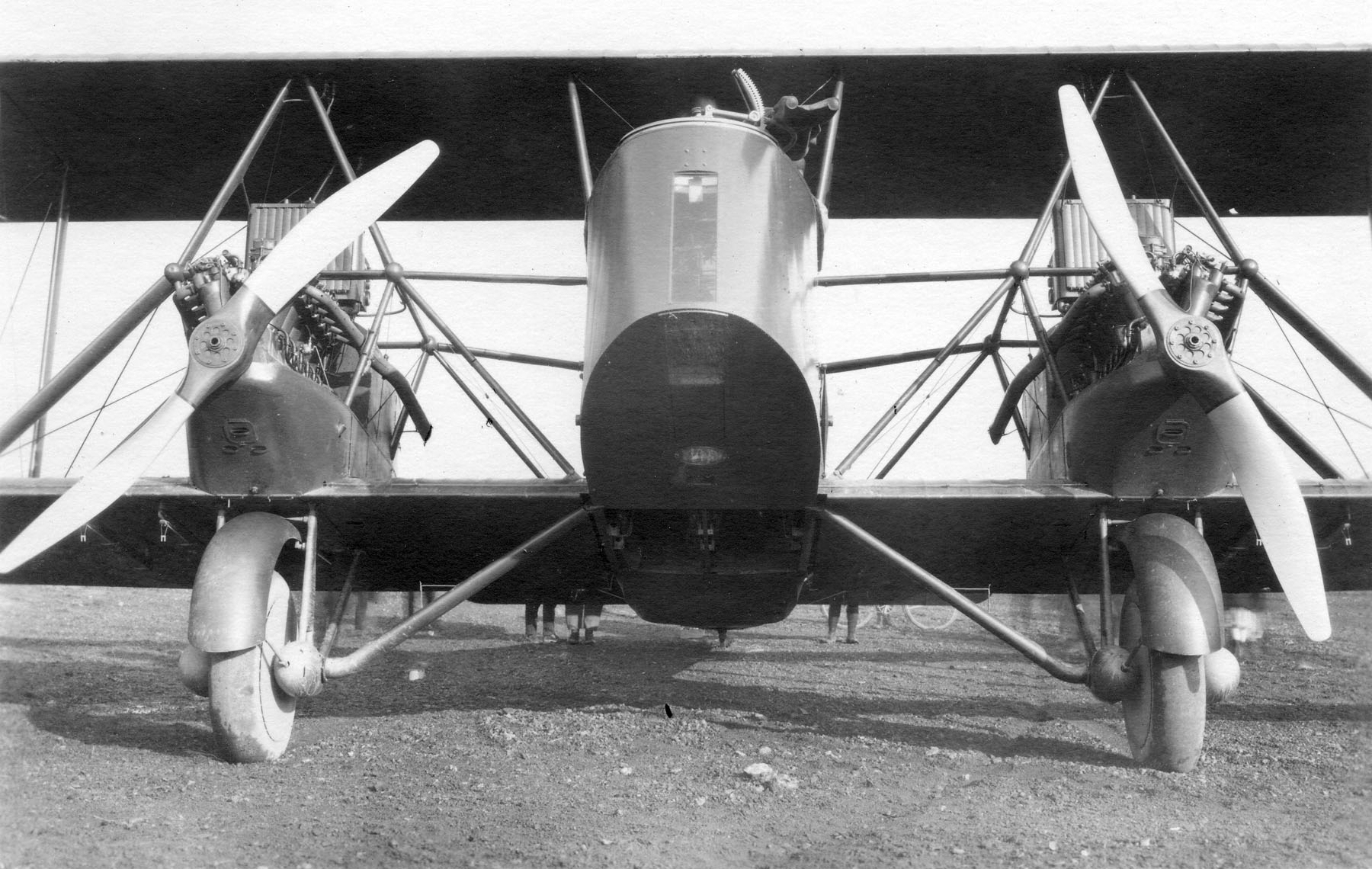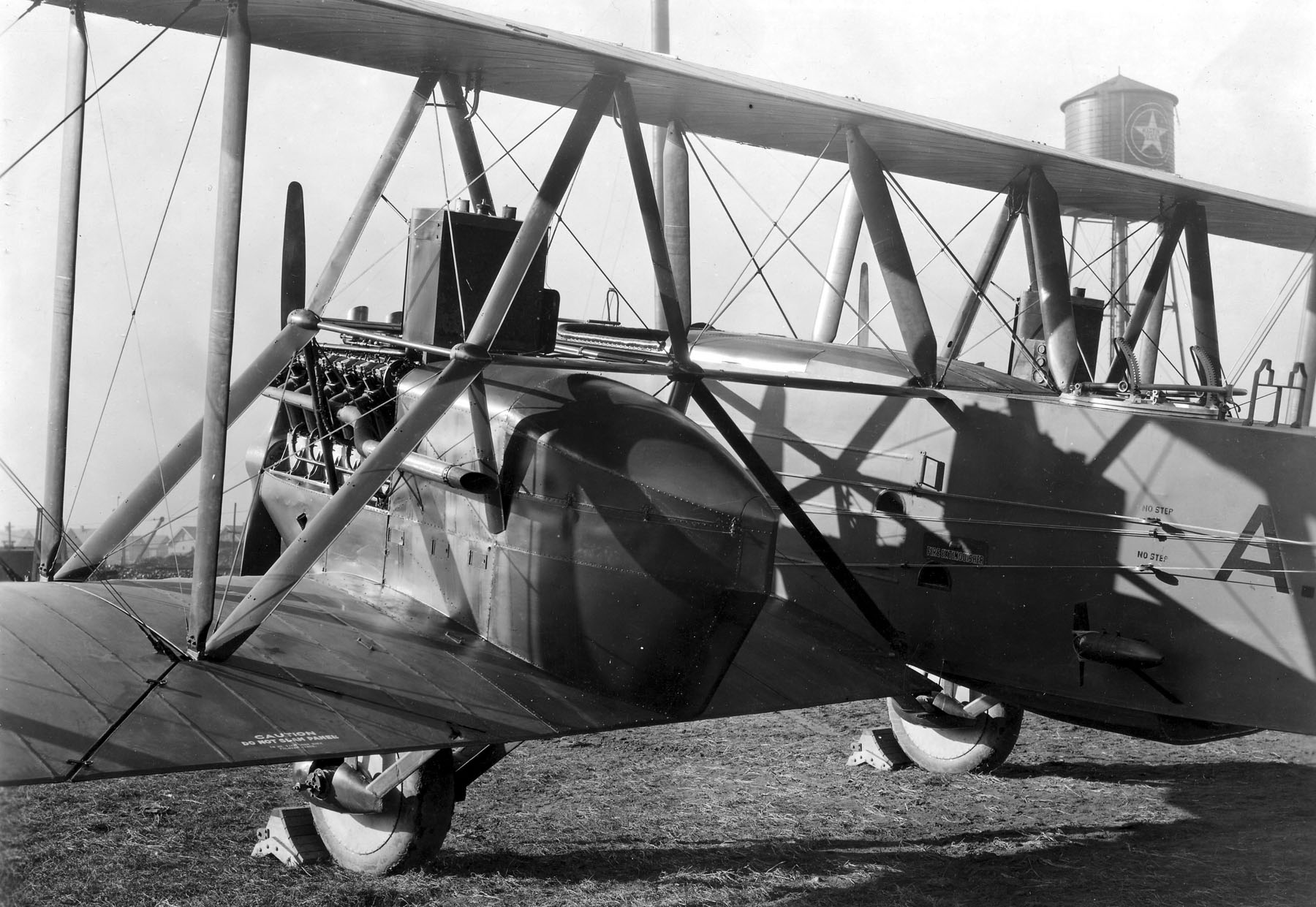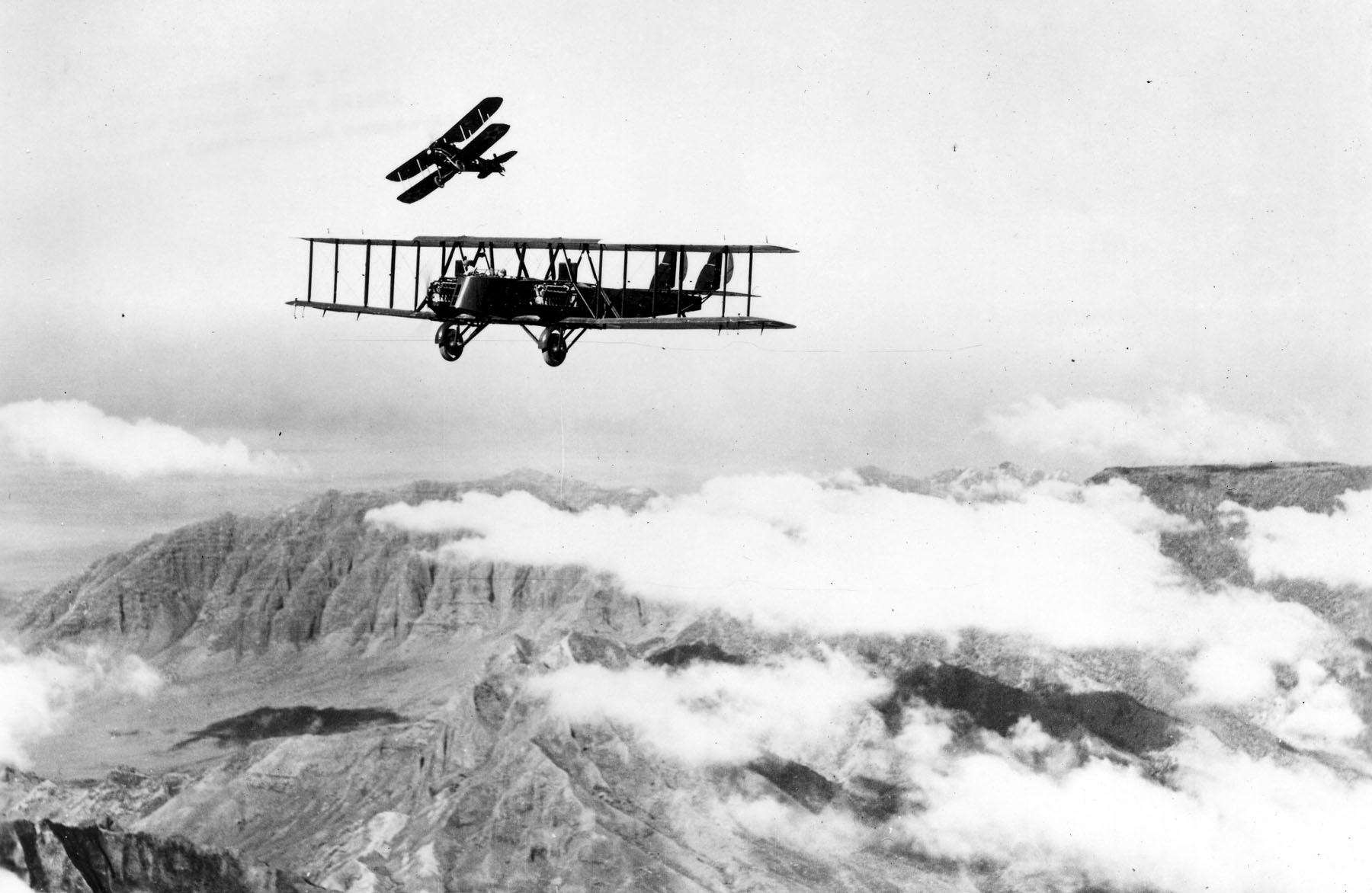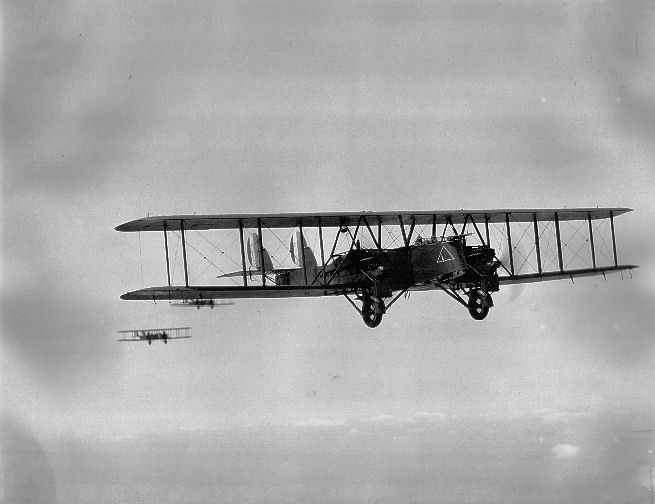Martin NBS-1 on:
[Wikipedia]
[Google]
[Amazon]


 The Martin NBS-1 was a military aircraft of the
The Martin NBS-1 was a military aircraft of the

 ;
*United States Army, Air Service and Air Corps
**1st Day Bombardment Group,
;
*United States Army, Air Service and Air Corps
**1st Day Bombardment Group, 
Martin MB-2 (converted to NBS-1) fact sheet, NMUSAFMartin NBS-1 fact sheet, NMUSAFReference to micarta bakelite propeller
* ttps://web.archive.org/web/20130404183235/http://www.nationalmuseum.af.mil/factsheets/factsheet.asp?id=330 Martin MB-2 (NBS-1) Exhibit page, National Museum of the United States Air Force {{LWF aircraft


 The Martin NBS-1 was a military aircraft of the
The Martin NBS-1 was a military aircraft of the United States Army Air Service
The United States Army Air Service (USAAS)Craven and Cate Vol. 1, p. 9 (also known as the ''"Air Service"'', ''"U.S. Air Service"'' and before its legislative establishment in 1920, the ''"Air Service, United States Army"'') was the aerial war ...
and its successor, the Army Air Corps Army Air Corps may refer to the following army aviation corps:
* Army Air Corps (United Kingdom), the army aviation element of the British Army
* Philippine Army Air Corps (1935–1941)
* United States Army Air Corps (1926–1942), or its p ...
. An improved version of the Martin MB-1
The Martin MB-1 was an American large biplane bomber designed and built by the Glenn L. Martin Company for the United States Army Air Service in 1918. It was the first purpose-built bomber produced by the United States.
In 1921 Martin produced ...
, a scout-bomber built during the final months of World War I
World War I (28 July 1914 11 November 1918), often abbreviated as WWI, was one of the deadliest global conflicts in history. Belligerents included much of Europe, the Russian Empire, the United States, and the Ottoman Empire, with fightin ...
, the NBS-1 was ordered under the designation MB-2 and is often referred to as such. The designation NBS-1, standing for "Night Bomber-Short Range", was adopted by the Air Service after the first five of the Martin bombers were delivered.
The NBS-1 became the standard frontline bomber of the Air Service in 1920 and remained so until its replacement in 1928–1929 by the Keystone Aircraft
Keystone Aircraft Corporation was an early American airplane manufacturer.
History
Headquartered in Bristol, Pennsylvania, the company was formed as "Ogdensburg Aeroway Corp" in 1920 by Thomas Huff and Elliot Daland, but its name was quickly ...
series of bombers. The basic MB-2 design was also the standard against which prospective U.S. Army bombers were judged until the production of the Martin B-10
The Martin B-10 was the first all-metal monoplane bomber to be regularly used by the United States Army Air Corps, entering service in June 1934.Jackson 2003, p. 246. It was also the first mass-produced bomber whose performance was superior to ...
in 1933.
Design and development
The NBS-1 was a wood-and-fabricbiplane
A biplane is a fixed-wing aircraft with two main wings stacked one above the other. The first powered, controlled aeroplane to fly, the Wright Flyer, used a biplane wing arrangement, as did many aircraft in the early years of aviation. While ...
without staggered wings, employing twin rudders on a twin vertical tail. Its two Liberty 12-A engines sat in nacelle
A nacelle ( ) is a "streamlined body, sized according to what it contains", such as an engine, fuel, or equipment on an aircraft. When attached by a pylon entirely outside the airframe, it is sometimes called a pod, in which case it is attached ...
s on the lower wing, flanking the fuselage. Ordered under the company designation MB-2 in June 1920, the NBS-1 was an improved larger version of the Martin MB-1
The Martin MB-1 was an American large biplane bomber designed and built by the Glenn L. Martin Company for the United States Army Air Service in 1918. It was the first purpose-built bomber produced by the United States.
In 1921 Martin produced ...
bomber built by the Glenn L. Martin Company in 1918, also known as the GMB or Glenn Martin Bomber. The first flight of the MB-2 took place 3 September 1920.
In addition to more powerful engines, larger wings and fuselage, and simplified landing gear, the NBS-1 also had a unique folding wing system, hinged outside the engine nacelles to fold backwards for storage in small hangars. Unlike the MB-1, whose engines were mounted between the wings in a fashion similar to the German Staaken R.VI Riesenflugzeug
A ''Riesenflugzeug'' (plural ''Riesenflugzeuge'', German for "giant aircraft"), sometimes colloquially referred to in English as an R-plane, was any member of a class of large World War I German bombers, possessing at least three aircraft engines ...
, the engines of the NBS-1 were fixed to the lower wing over the landing gear.
The MB-2 was designed as a night bomber and except for a greater load capacity, had reduced performance characteristics compared to its MB-1 predecessor. The first 20 (five MB-2s and 15 NBS-1s) were ordered from the Martin Company, which recommended a further 50 be produced to help its struggling financial condition. However the design was owned by the U.S. Army and subsequent contracts for 110 bombers were awarded by low bid to three other companies: Curtiss Aircraft
Curtiss Aeroplane and Motor Company (1909 – 1929) was an American aircraft manufacturer originally founded by Glenn Hammond Curtiss and Augustus Moore Herring in Hammondsport, New York. After significant commercial success in its first decades ...
(50 ordered); L-W-F Engineering Company of College Point, New York
College Point is a working-middle-class neighborhood in the New York City borough of Queens. It is bounded to the south by Whitestone Expressway and Flushing; to the east by 138th Street and Malba/ Whitestone; to the north by the East River; an ...
(35); and Aeromarine Plane and Motor Company of Keyport, New Jersey
Keyport is a borough in Monmouth County, New Jersey, United States. At the 2010 United States Census, the borough's population was 7,240,turbosupercharger
In an internal combustion engine, a turbocharger (often called a turbo) is a forced induction device that is powered by the flow of exhaust gases. It uses this energy to compress the intake gas, forcing more air into the engine in order to pro ...
s manufactured by General Electric
General Electric Company (GE) is an American multinational conglomerate founded in 1892, and incorporated in New York state and headquartered in Boston. The company operated in sectors including healthcare, aviation, power, renewable energ ...
, the first such modification made in production quantity. Although enabling the NBS-1 to reach an altitude of over 25,000 ft (7,650 m), the turbosuperchargers were mechanically unreliable and not used operationally.
The bomber was equipped defensively with five .30 in (7.62 mm) Lewis Guns, mounted in pairs in positions in the nose and upper rear fuselage, and singly in a bottom mount, firing behind and beneath the rear fuselage.
The first two Martin MB-2s, Air Service serials ''64195'' and ''64196'', were retained at McCook Field
McCook Field was an airfield and aviation experimentation station in Dayton, Ohio, United States. It was operated by the Aviation Section, U.S. Signal Corps and its successor the United States Army Air Service from 1917 to 1927. It was named fo ...
in Dayton, Ohio
Dayton () is the sixth-largest city in the U.S. state of Ohio and the county seat of Montgomery County. A small part of the city extends into Greene County. The 2020 U.S. census estimate put the city population at 137,644, while Greater Day ...
, for R&D flight testing, marked with project numbers 'P162' and 'P227' respectively, as was the second NBS-1, ''64201'', marked as 'P222'. Four Curtiss NBS-1s were also assigned to McCook.
Operational history
The NBS-1 was the primary bomber used byBrigadier General
Brigadier general or Brigade general is a military rank used in many countries. It is the lowest ranking general officer in some countries. The rank is usually above a colonel, and below a major general or divisional general. When appointed ...
Billy Mitchell
William Lendrum Mitchell (December 29, 1879 – February 19, 1936) was a United States Army officer who is regarded as the father of the United States Air Force.
Mitchell served in France during World War I and, by the conflict's end, command ...
during Project B, the demonstration bombing of naval ships in July 1921. Six NBS-1 bombers, led by Captain
Captain is a title, an appellative for the commanding officer of a military unit; the supreme leader of a navy ship, merchant ship, aeroplane, spacecraft, or other vessel; or the commander of a port, fire or police department, election precinct, e ...
Walter Lawson of the 96th Squadron operating out of Langley Field Langley may refer to:
People
* Langley (surname), a common English surname, including a list of notable people with the name
* Dawn Langley Simmons (1922–2000), English author and biographer
* Elizabeth Langley (born 1933), Canadian perform ...
, bombed and sank the captured German battleship
A battleship is a large armored warship with a main battery consisting of large caliber guns. It dominated naval warfare in the late 19th and early 20th centuries.
The term ''battleship'' came into use in the late 1880s to describe a type of ...
on 21 July 1921, using specially developed 2,000 lb (907 kg) demolition bombs, externally mounted beneath the fuselage.
An example of the plane was featured in director William Wellman
William Augustus Wellman (February 29, 1896 – December 9, 1975) was an American film director, producer, screenwriter, actor and military pilot. He was known for his work in crime, adventure, and action genre films, often focusing on avi ...
's 1927 Paramount
Paramount (from the word ''paramount'' meaning "above all others") may refer to:
Entertainment and music companies
* Paramount Global, also known simply as Paramount, an American mass media company formerly known as ViacomCBS. The following busin ...
silent film Wings
A wing is a type of fin that produces lift while moving through air or some other fluid. Accordingly, wings have streamlined cross-sections that are subject to aerodynamic forces and act as airfoils. A wing's aerodynamic efficiency is expresse ...
, disguised as a German Gotha bomber
''Gothaer Waggonfabrik'' (''Gotha'', GWF) was a German manufacturer of rolling stock established in the late nineteenth century at Gotha. During the two world wars, the company expanded into aircraft building.
World War I
In World War I, Got ...
. Footage was shot overhead of the MB-2 as it exited its tent hangar and from the MB-2 during flight. These aerial shots were revolutionary at the time, showing the public a perspective of aerial combat from the pilots' point of view. ''Wings'' won the first-ever Academy Award for best picture.
Operators

 ;
*United States Army, Air Service and Air Corps
**1st Day Bombardment Group,
;
*United States Army, Air Service and Air Corps
**1st Day Bombardment Group, Kelly Field
Kelly Field (formerly Kelly Air Force Base) is a Joint-Use facility located in San Antonio, Texas. It was originally named after George E. M. Kelly, the first member of the U.S. military killed in the crash of an airplane he was piloting.
In ...
, Texas
Texas (, ; Spanish language, Spanish: ''Texas'', ''Tejas'') is a state in the South Central United States, South Central region of the United States. At 268,596 square miles (695,662 km2), and with more than 29.1 million residents in 2 ...
( 2nd Bombardment Group, Langley Field Langley may refer to:
People
* Langley (surname), a common English surname, including a list of notable people with the name
* Dawn Langley Simmons (1922–2000), English author and biographer
* Elizabeth Langley (born 1933), Canadian perform ...
, Virginia
Virginia, officially the Commonwealth of Virginia, is a state in the Mid-Atlantic and Southeastern regions of the United States, between the Atlantic Coast and the Appalachian Mountains. The geography and climate of the Commonwealth ar ...
)
*** 11th Bomb Squadron – operated MB-2 1920–1927
*** 20th Bomb Squadron – operated NBS-1 1920–1929
*** 49th Bomb Squadron – operated NBS-1 1920–1929
***96th Bomb Squadron
The 96th Bomb Squadron is a unit of the United States Air Force 2d Operations Group located at Barksdale Air Force Base, Louisiana. The 96th is equipped with the Boeing B-52H Stratofortress.
Formed in August 1917, the 96 BS saw combat on the Wor ...
– operated NBS-1 1920–1928
** 4th Composite Group, Nichols Field
Nichols Field was a U.S. military airfield located south of Manila in Pasay and Parañaque, Metro Manila, Luzon, the Philippines. The complex is located at Andrews Avenue by the north, Domestic Road by the west, NAIA Road and Ninoy Aquino Avenu ...
, Luzon
Luzon (; ) is the largest and most populous island in the Philippines. Located in the northern portion of the Philippines archipelago, it is the economic and political center of the nation, being home to the country's capital city, Manila, as ...
, Philippines
The Philippines (; fil, Pilipinas, links=no), officially the Republic of the Philippines ( fil, Republika ng Pilipinas, links=no),
* bik, Republika kan Filipinas
* ceb, Republika sa Pilipinas
* cbk, República de Filipinas
* hil, Republ ...
*** 28th Bomb Squadron – operated NBS-1 1924–1929
** 5th Composite Group, Luke Field, Territory of Hawaii
The Territory of Hawaii or Hawaii Territory ( Hawaiian: ''Panalāʻau o Hawaiʻi'') was an organized incorporated territory of the United States that existed from April 30, 1900, until August 21, 1959, when most of its territory, excluding ...
*** 23d Bomb Squadron – operated NBS-1 1922–1929
***72d Bomb Squadron
The 72d Test and Evaluation Squadron is part of the 53d Wing at Eglin Air Force Base, Florida. The squadron is geographically separated but operated from Whiteman Air Force Base, Missouri. It conducts testing and evaluation of the B-2 Spi ...
– operated NBS-1 1923–1929
**6th Composite Group
Alec Trevelyan (006) is a fictional character and the main antagonist in the 1995 James Bond film ''GoldenEye'', the first film to feature actor Pierce Brosnan as Bond. Trevelyan is portrayed by actor Sean Bean. The likeness of Bean as Alec Tre ...
, Albrook Field
Albrook Air Force Station is a former United States Air Force facility in Panama
Panama ( , ; es, link=no, Panamá ), officially the Republic of Panama ( es, República de Panamá), is a transcontinental country spanning the southern ...
, Panama Canal Zone
The Panama Canal Zone ( es, Zona del Canal de Panamá), also simply known as the Canal Zone, was an unincorporated territory of the United States, located in the Isthmus of Panama, that existed from 1903 to 1979. It was located within the terr ...
*** 25th Bomb Squadron – operated NBS-1 1922–1929

Surviving aircraft
There are no known surviving original Martin NBS-1 bombers. In 2002, however, a full-scale reproduction went on display at theNational Museum of the United States Air Force
The National Museum of the United States Air Force (formerly the United States Air Force Museum) is the official museum of the United States Air Force located at Wright-Patterson Air Force Base, northeast of Dayton, Ohio. The NMUSAF is the ...
in Dayton, Ohio
Dayton () is the sixth-largest city in the U.S. state of Ohio and the county seat of Montgomery County. A small part of the city extends into Greene County. The 2020 U.S. census estimate put the city population at 137,644, while Greater Day ...
, constructed from original drawings.
Specifications (NBS-1)
See also
References
Martin MB-2 (converted to NBS-1) fact sheet, NMUSAF
External links
* ttps://web.archive.org/web/20130404183235/http://www.nationalmuseum.af.mil/factsheets/factsheet.asp?id=330 Martin MB-2 (NBS-1) Exhibit page, National Museum of the United States Air Force {{LWF aircraft
Martin NBS-1
The Martin NBS-1 was a military aircraft of the United States Army Air Service and its successor, the Army Air Corps. An improved version of the Martin MB-1, a scout-bomber built during the final months of World War I, the NBS-1 was ordere ...
NBS-1
The Martin NBS-1 was a military aircraft of the United States Army Air Service and its successor, the Army Air Corps. An improved version of the Martin MB-1, a scout-bomber built during the final months of World War I, the NBS-1 was ordere ...
Biplanes
Aircraft first flown in 1920
Twin piston-engined tractor aircraft